Publications
Articles, publications, books, tools and multimedia features from the U.S. Institute of Peace provide the latest news, analysis, research findings, practitioner guides and reports, all related to the conflict zones and issues that are at the center of the Institute’s work to prevent and reduce violent conflict.
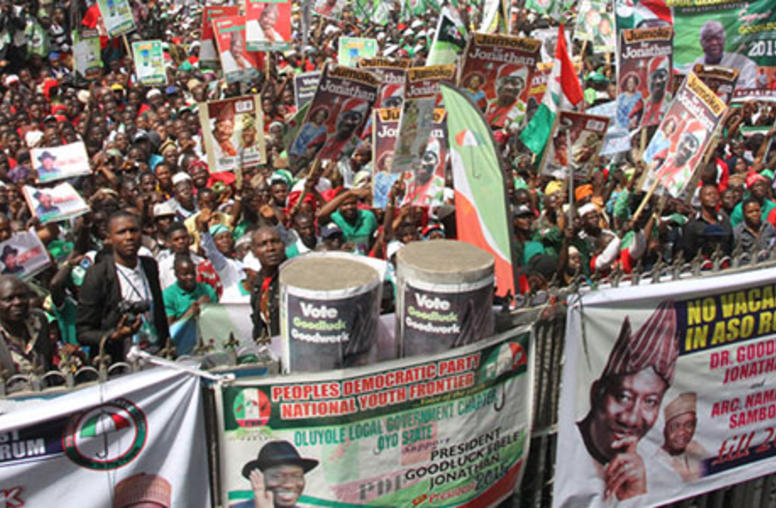
Democratic But Deadly
Will violence rock Nigeria's Feb. 14 national election? Perhaps--but there was a way to prevent it.
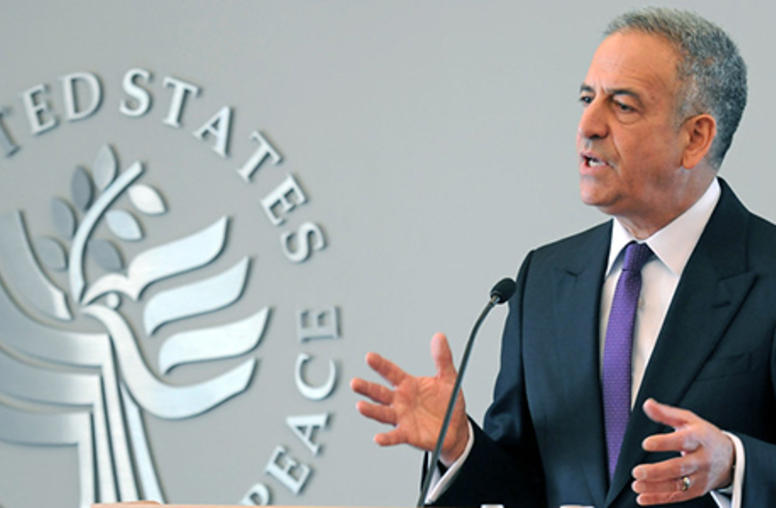
Feingold Presses Three African States on Elections
Russell Feingold, the U.S. Special Envoy working to stabilize Africa’s Great Lakes region, urged Rwanda, Burundi and the Democratic Republic of Congo (DRC) to hold fair, democratic elections as a key step to bringing peace to the region. And he pressed the DRC to launch a promised military offensive in the country’s East against an ethnic Hutu militia that includes fighters who participated in the anti-Tutsi genocide in Rwanda 21 years ago.
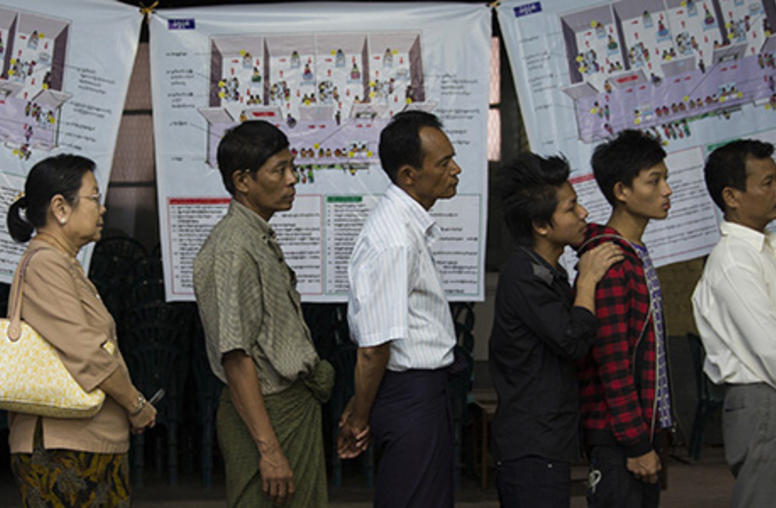
Q&A: Myanmar Voters Cast Ballots for Democracy
Myanmar’s transition to representative democracy took a critical step on Nov. 8 as the nation held the first general election since almost 50 years of military rule ended in 2011. While ballots are still being counted, the National League for Democracy, led by Nobel Peace Prize laureate Aung San Suu Kyi, appears headed to winning control of parliament. Priscilla Clapp, a former American diplomat in Myanmar and U.S. Institute of Peace specialist on the country, discusses the implications of th...
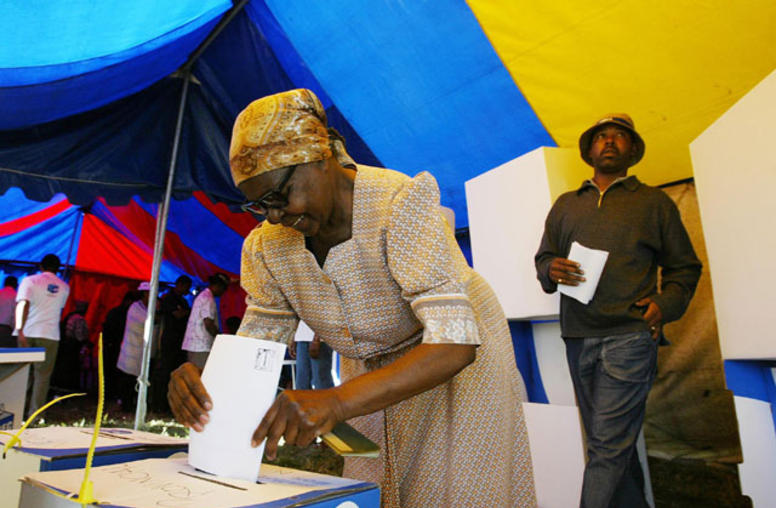
Reducing Electoral Violence in Sub-Saharan Africa
Dorina A. Bekoe, author of “Voting in Fear: Electoral Violence in Sub-Saharan Africa” and former USIP senior program officer, discusses her book’s new findings on elections and conflict in Africa and which countries are at risk for violence in the months ahead.
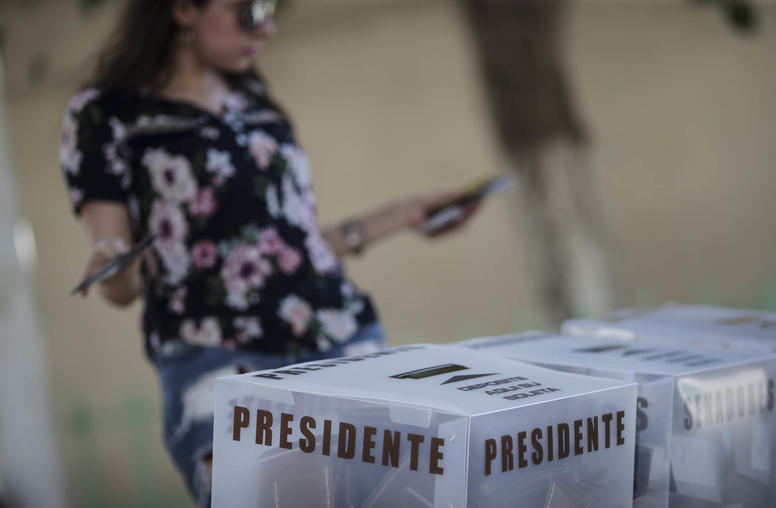
Un avance sobre las elecciones de 2024 en América Latina
En los últimos años, el sentimiento anti-oficialista se ha apoderado de la mayoría de América Latina, moviendo el péndulo electoral hacia la izquierda en México, Colombia, Honduras y Brasil, trastocando las coaliciones corruptas que durante mucho tiempo han gobernado en Guatemala y entregando la presidencia de Argentina a un autoproclamado "anarcocapitalista". Sin embargo, el 2024 podría resultar ser un buen año para los candidatos del oficialismo. En los cinco países con elecciones este año —El Salvador, Panamá, República Dominicana, Uruguay y México—, los aspirantes de los partidos gobernantes, al menos hasta ahora, encabezan las encuestas.
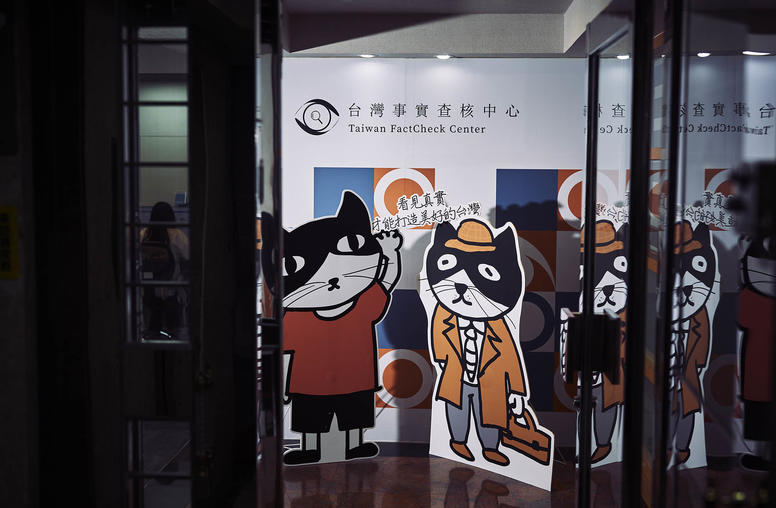
Taiwan’s Democracy Prevailed Despite China’s Election Interference
The election of Lai Ching-te, or William Lai, as Taiwan’s next president despite firm opposition from China is a positive sign that democracy is alive and well on the island nation. Nevertheless, the fact that Lai, whom China has deemed a “troublemaker” and “separatist,” won by a narrow margin, and his Democratic Progressive Party (DPP) lost its majority in the Legislative Yuan, will be seen in Beijing as an acceptable outcome, as it restricts Lai’s ability to advance his agenda and reveals the limits of the DPP’s appeal.
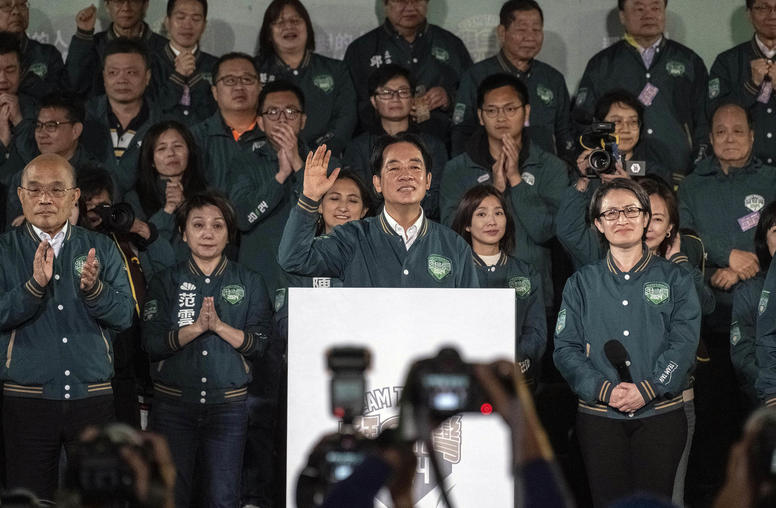
The Pivotal Elections of 2024: Key Races That Will Shape the Global Landscape
Around 2 billion people in more than 50 countries, including India, Chad, Mexico and South Africa, will go to the polls this year in what has been described as the Super Bowl of elections. From major democracies to emerging nations, the outcomes of these votes will undoubtedly play a crucial role in shaping the future trajectory of countries around the world. While some elections could produce conflict, most will take place under the threat of disruption — all of this will have serious implications for U.S. foreign policy and security.
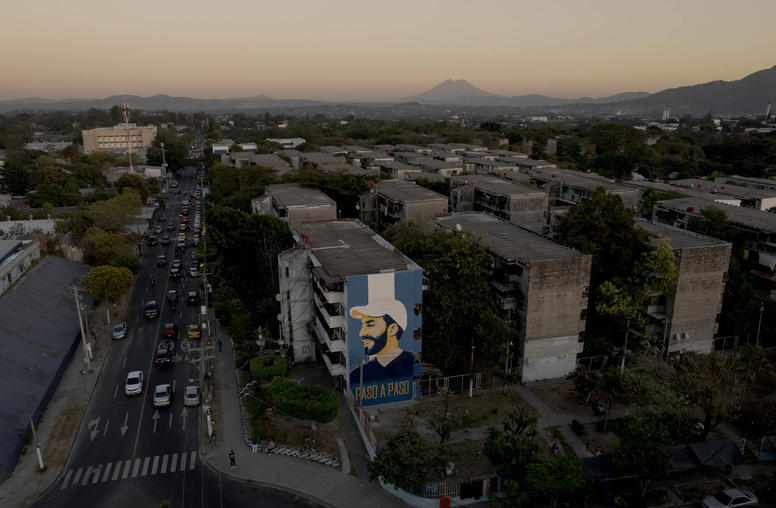
El Salvador’s Bukele: From ‘World’s Coolest Dictator’ to ‘Philosopher King’
El Salvador’s president, Nayib Bukele, celebrated a landslide electoral victory on Feb. 4, far outstripping his nearest competitor. “The opposition was pulverized,” Bukele told jubilant crowds outside the National Palace on election night. In reply to critics who warn that El Salvador is moving toward authoritarianism, he proclaimed, “we are not substituting democracy because El Salvador has never had democracy.” The leader who once called himself the “world’s coolest dictator” now boasts of being his country’s “philosopher king.”
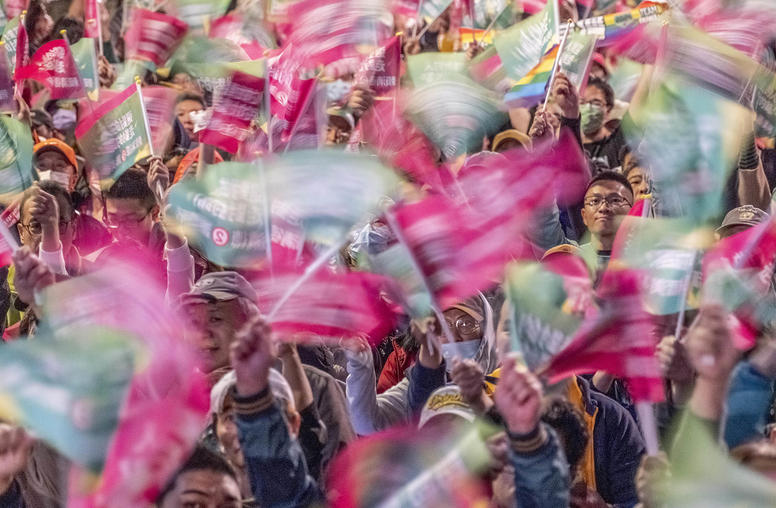
Are Taiwan and China on a Collision Course?
In a rebuff to China, Taiwanese voters on January 13 elected pro-sovereignty candidate Lai Ching-te as the island nation’s next president. Lai’s victory secures a historic third term for the ruling Democratic Progressive Party.
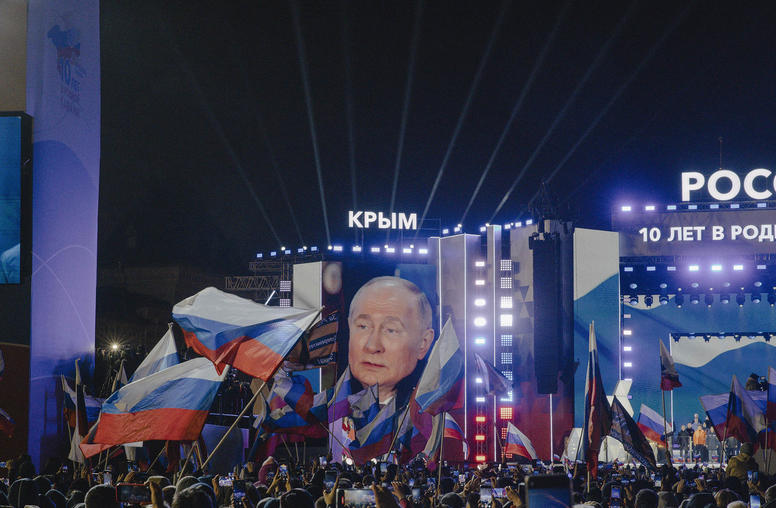
Putin’s Next Term: More Repression in Russia, Aggression in Ukraine
Vladimir Putin views his election for a fifth term as president as a plebiscite to cement his legitimacy as a great wartime leader leading an existential fight to save Russia from Ukrainian “Nazis” and from Western threats to Russia’s very existence as a great power and a unique civilization.